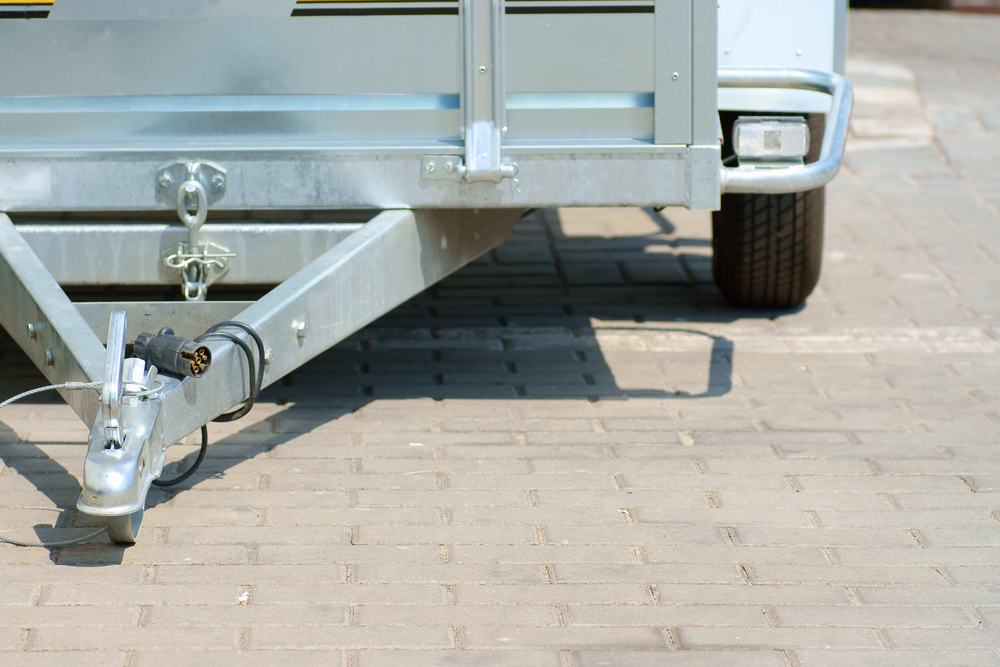Whether you’re hauling construction materials, transporting heavy machinery, or moving your prized belongings, the right trailer makes all the difference. With so many trailer types available—each designed for specific purposes—choosing the right one can be overwhelming. This guide is here to simplify that decision by breaking down the different types of trailers, their uses, features, and industries they serve.
By the end of this post, you’ll know which trailer suits your specific needs, whether it’s a flatbed trailer, utility trailer, or any of the many specialized options. Plus, we’ll discuss how Interstate Haulers can support your transportation needs.
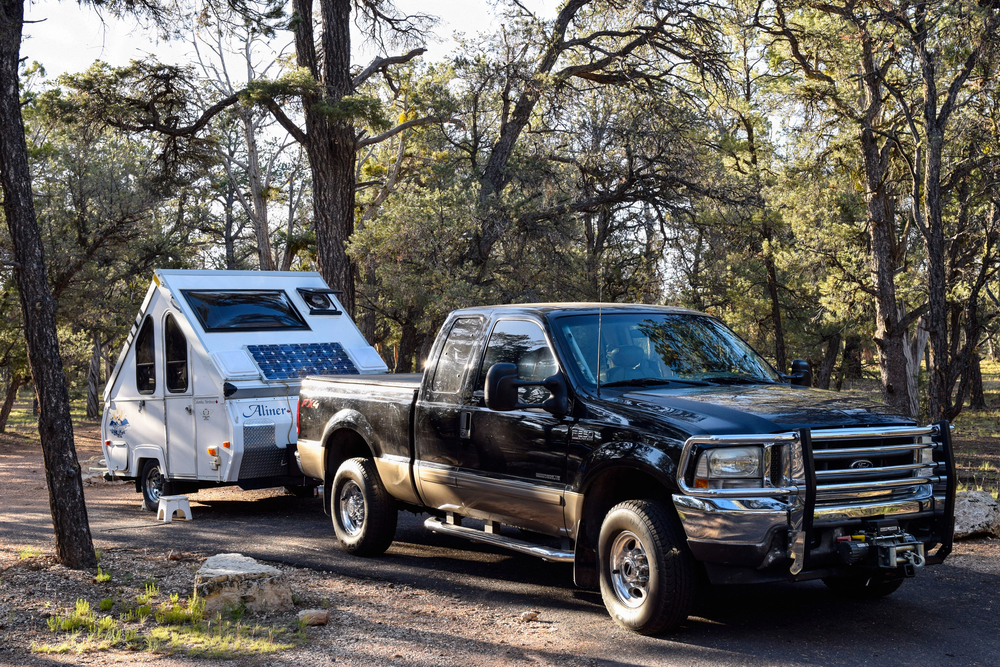
Trailer Types by Purpose
Utility Trailers
Utility trailers are the workhorses of the trailer world. These versatile options are perfect for hauling materials for landscaping, construction, and agricultural projects. From carrying small equipment to aiding DIY projects for small business owners, utility trailers are practical and cost-effective.
Key Features:
- Lightweight with a sturdy design.
- Available in a range of sizes to accommodate small to medium loads.
- Customizable with add-ons like mesh sides or tailgates for added durability.
Utility trailers are a popular choice for homeowners tackling projects at home or professionals carrying equipment to job sites.
Equipment Trailers
If heavy-duty hauling is on your agenda, equipment trailers are your best bet. These trailers are specifically built to support the weights of heavy machinery or construction materials that standard trailers might not handle.
Industries Served:
- Construction
- Landscaping
- Agriculture
Key Features:
- Enhanced durability with reinforced designs for heavier loads.
- Available with ramps and tie-down points for safely securing equipment like skid steers or tractors.
- Higher load capacity compared to utility trailers.
For anyone working with heavy machinery or bulky equipment, equipment trailers offer the required strength and reliability.
Car Haulers
Car hauler trailers are designed to transport cars, trucks, and other vehicles. They are ideal for car enthusiasts, collectors, and dealerships that need to transport vehicles over long distances. Car haulers come in different sizes and configurations, including open and enclosed trailers, to accommodate various types of vehicles.
Features and Advantages:
- Spacious interior to accommodate multiple vehicles.
- Ramps or lifts for easy loading and unloading.
- Tie-downs and straps to secure vehicles during transport.
- Enclosed trailers provide protection from the elements and added security.
Car haulers typically range from 20 to 53 feet in length and can accommodate up to 10 vehicles, depending on the manufacturer and model. Whether you’re moving a single classic car or an entire fleet, car haulers offer the space and security needed for safe transport.

Trailer Types by Design
Enclosed Trailers
Enclosed trailers, as the name suggests, are completely enclosed by walls and a roof, offering added containment and protection. These multipurpose trailers are commonly used for transporting valuable or sensitive cargo like furniture, electronics, or motorcycles. These can also be called a cargo trailer.
Benefits of Enclosed Trailers:
- Protection from weather, road debris, and theft.
- Suitable for personal and commercial applications.
- Great for special cargo like motorcycle trailers, car trailers, or other high-value items.
Most enclosed trailers even include customizable space within, allowing users to tailor them to specific tasks like hauling tools and construction gear.
Flatbed Trailers
For those needing options for oversized loads, flatbed trailers shine. With a completely open design on all sides, flatbeds provide easy loading and unloading while also accommodating large or irregularly shaped items. They also have an extendable flatbed trailer.
Common Uses:
- Transporting construction materials like steel beams and lumber.
- Hauling agricultural equipment or industrial machines.
- Moving oversized freight that cannot fit in a standard trailer.
These trailers are extremely popular within the construction and transportation industries, as they maximize load flexibility.
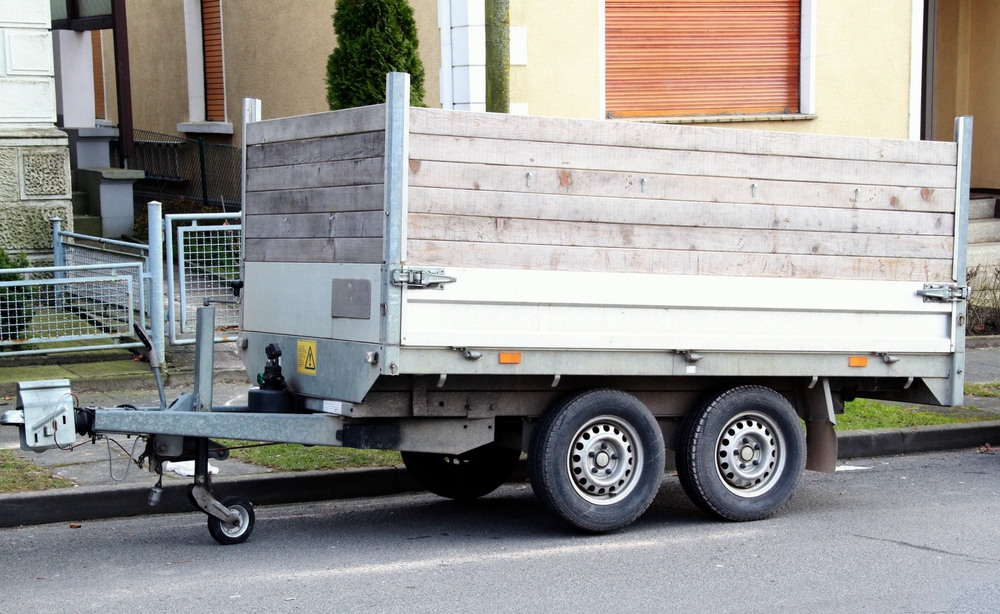
Specialty Trailers
Tilt Trailers
Tilt trailers make easy loading and unloading a priority. They’re perfect for moving tractors, classic cars, skid steers, or forklifts thanks to their tilt-bed designs, which eliminate the need for ramps.
Features to Look For:
- Torsion-axle suspensions for smooth transportation.
- Available in different sizes to accommodate various load requirements.
- Ideal for towing vehicles and equipment over rough terrain.
Tilt trailers are favored by those in construction and agriculture for their efficiency, especially when dealing with heavier trailers or oversized tools.
Gooseneck Trailers
Gooseneck trailers are a popular specialized option for those needing greater load capacity and stability. Gooseneck trailers connect to a hitch in the bed of a pickup truck, enhancing stability and maneuverability for heavy-duty hauling.
Their unique attachment point at the truck bed (rather than the bumper) provides unmatched towing strength. Horse trailers and stock trailers are considered goodneck trailers.
Best Uses:
- Transporting livestock, large machinery, or construction gear.
- Heavy-duty hauling with minimal sway during transport.
These are essential for industries dealing with livestock trailers, heavy machinery, or bulky freight.
Dump Trailers
Designed for materials that need unloading, dump trailers are often equipped with a hydraulic lift, making them indispensable for jobs requiring quick cleanup or transportation. Landscaping and construction professionals use them to haul materials like gravel, dirt, or debris.
Advantages:
- Saves labor with automated dumping.
- Offers versatility for farming equipment and building materials.
Dump trailers streamline projects, allowing you to execute cleanups faster while maintaining high output levels.
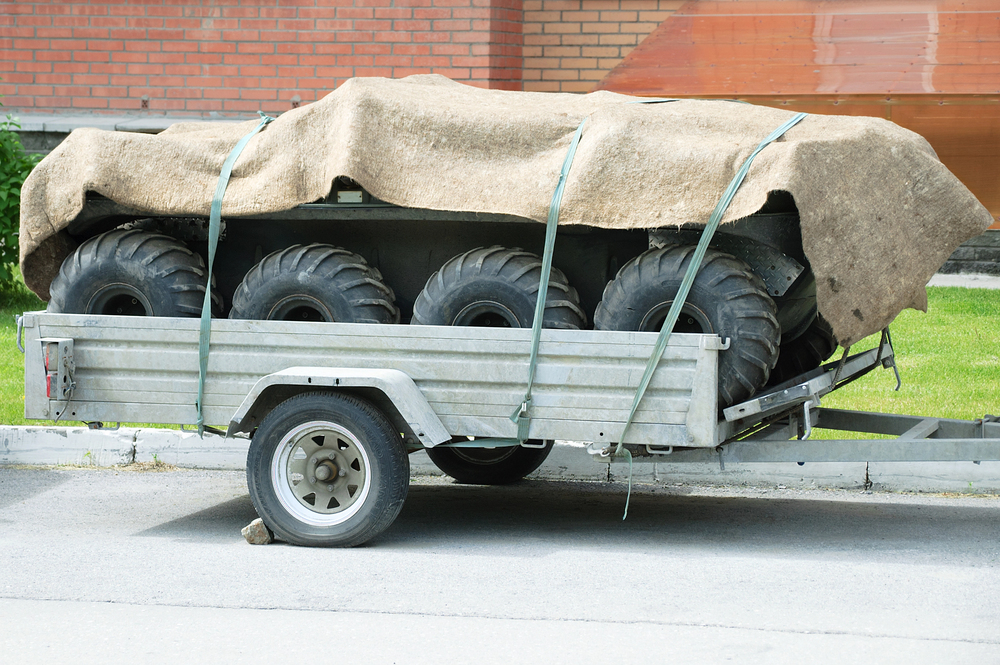
Trailer Materials and Features
When choosing a trailer, it’s essential to consider the materials they’re built from and the added features they offer. Steel trailers are excellent for heavier loads, while aluminum trailers, being lighter, offer improved fuel efficiency and easier maneuverability.
Features like multiple axles, tie-down points, taller sidewalls, and safety features (like rear bumpers and receiver hitches) enhance both functionality and security. Many trailers can also be equipped with hydraulic lifts, step decks, or specialized axles to improve capability over rough terrain.
Aluminum Trailers
Aluminum trailers are made from lightweight and corrosion-resistant aluminum materials, making them ideal for hauling smaller loads and equipment. They are popular among outdoor enthusiasts, contractors, and small businesses that need to transport gear and equipment.
Features and Advantages:
- Lightweight and easy to tow.
- Corrosion-resistant and durable.
- Low maintenance and easy to clean.
- Affordable and cost-effective.
Aluminum trailers typically range from 10 to 20 feet in length and can accommodate loads up to 2,000 pounds. Their lightweight nature makes them easier to handle and more fuel-efficient, making them a practical choice for a variety of hauling needs.

Trailer Uses and Applications
Whether you’re a construction professional, farmer, or adventurer, trailers cater to broad applications. In addition to specialized trailers, there are other trailers that may not be suitable for certain loads or conditions but offer unique features for specific applications. Here are some common roles they play in daily operations:
- Construction Projects for hauling materials and equipment.
- Agriculture for moving tools, produce, or machinery across vast terrains.
- Recreational Use for transporting RVs, motorcycles, or boats.
- Transportation Industry for streamlining logistics and hauling freight trailers.
From small box trailers to specialized trailers like lowboy trailers, there’s a trailer for every need.
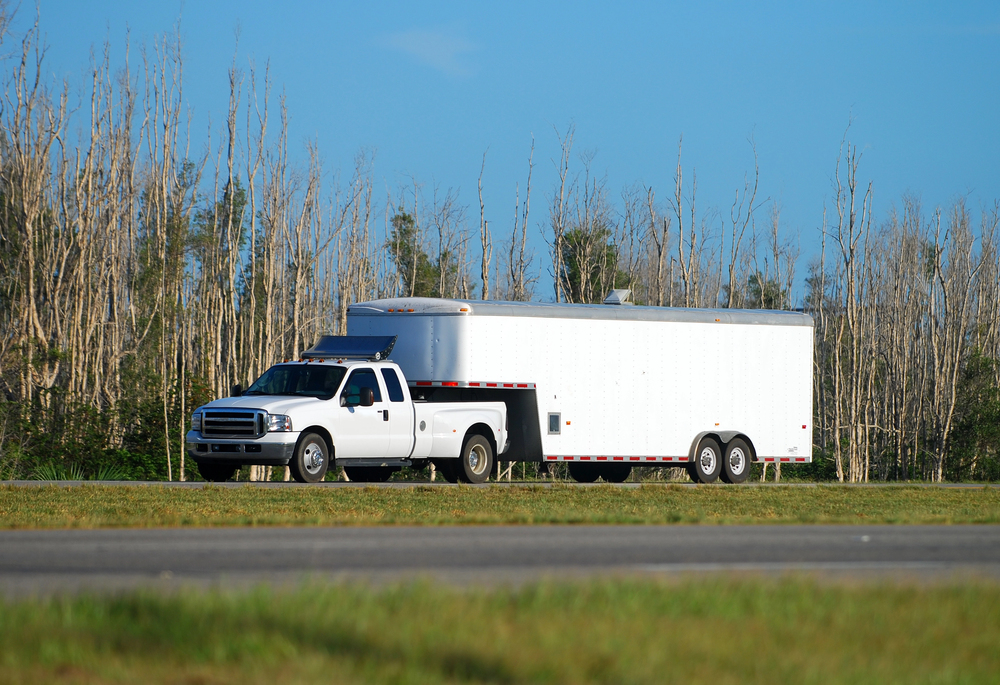
Take Action Today with Interstate Haulers!
Choosing the right trailer is just the first step—transporting it safely is equally important. At Interstate Haulers, we specialize in nationwide transportation for all types of trailers, from boats and RVs to industrial trailers.
Why choose us?
- Decades of experience in heavy haul trucking.
- A trusted network of drivers ready to handle your specialized hauling needs.
- Reliable services for boat transport, RV trailer transport, and much more.
Get Started Now
- Get a Free Quote Today for your transportation needs.
- Contact Interstate Haulers for expert advice and tailored solutions.
- Read our Customer Testimonials to see the difference we make.
Whether it’s for business or personal use, trailers are an essential tool for getting the job done right. Partner with Interstate Haulers to ensure your trailer—and your cargo—arrive safely, securely, and on time!

Conclusion
In conclusion, there are various types of trailers designed to meet specific needs and applications. From car haulers to agricultural and livestock trailers, each type of trailer has its unique features and advantages.
When choosing a trailer, it’s essential to consider factors such as capacity, dimensions, and features to ensure that it meets your specific needs. Whether you’re a contractor, farmer, or outdoor enthusiast, there’s a trailer out there that’s right for you.
Learn More and Resources
Expand your knowledge about trailers and their uses with these trusted resources:
- Guide to Flatbed Trailers (UShip) – Understand the benefits of flatbed trailers and find expert transport services.
- Safety Tips for Towing (NHTSA) – Essential tips to ensure safe towing practices from the National Highway Traffic Safety Administration.
- What is a Gooseneck Trailer? (PJ Trailers) – Learn about gooseneck trailers, their unique features, and why they are a popular choice.
- RV Trailer Ownership Guide (Camping World) – An in-depth guide for RV trailer owners, including usage hints and tips.
- Enclosed Cargo Trailers Explained (USA Cargo Trailer) – Discover the advantages of enclosed cargo trailers and how to choose the right one for your needs.
- Trailer Maintenance Checklist (DoItYourself) – A handy checklist to keep your trailer in top condition and ensure safe operation.
- Towing Capacity and Vehicle Matching Guide (Edmunds) – Learn how to calculate towing capacity and properly match it to your vehicle.
- Benefits of Aluminum Trailers (Featherlite Trailers) – Explore why aluminum trailers are a lightweight and durable choice.
These resources provide valuable insights and practical advice to help you make informed decisions about trailer selection and usage.

